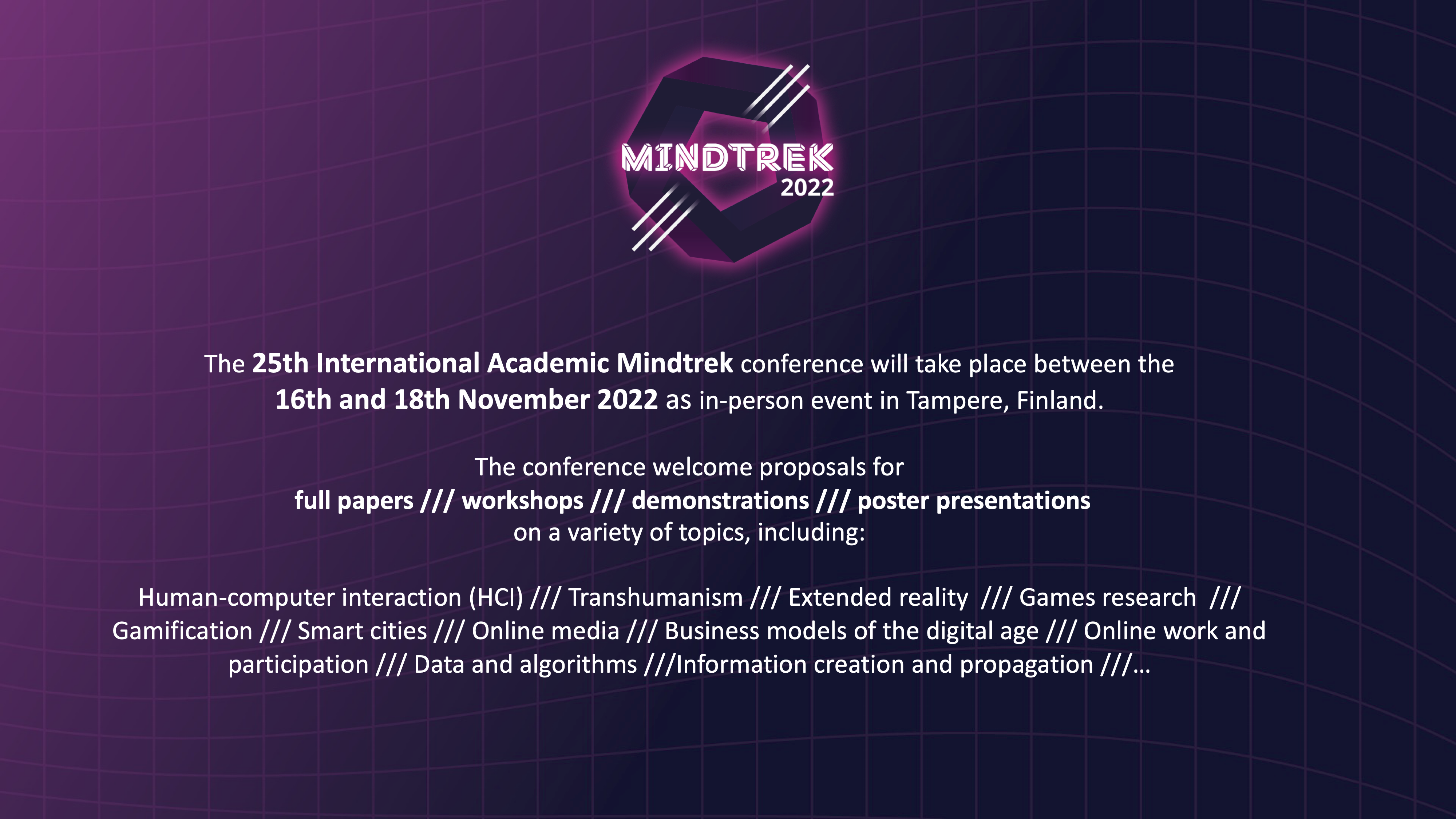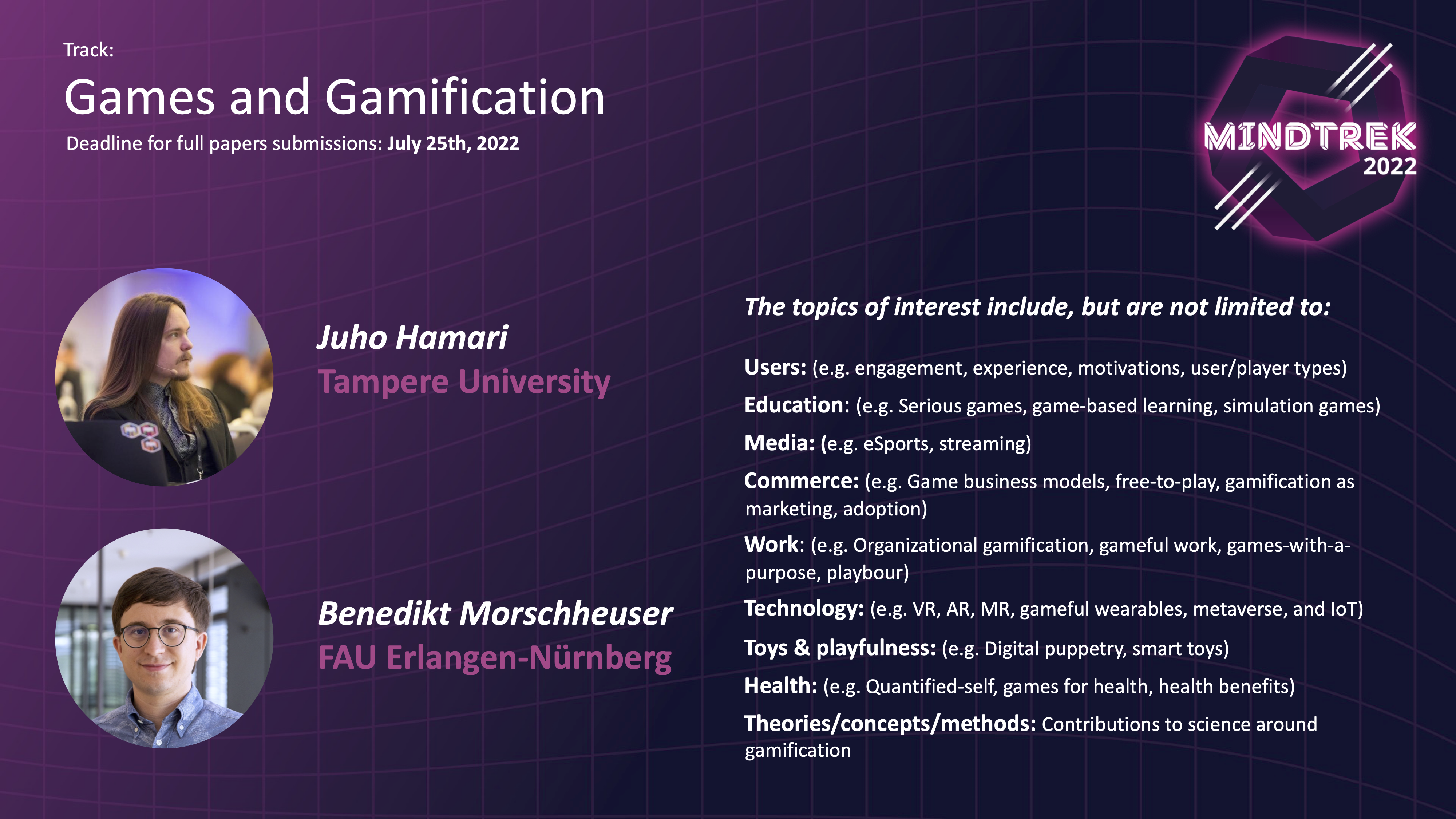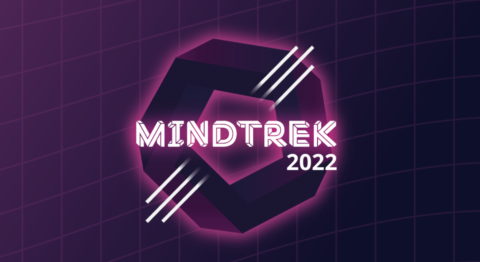Call for Papers on Games and Gamification @ 25th International Academic Mindtrek Conference
We are pleased to invite you to submit your latest games or gamification research to our call for papers at the 25th International Academic Mindtrek Conference, 16th to 18th November 2022, Tampere, Finland. Together with Prof. Juho Hamari, Prof. Dr. Benedikt Morschheuser is co-chairing this year’s Games and Gamification Session.
Call for Papers: Games and Gamification Track at International Academic Mindtrek conference
Gamification is considered as a “process of transforming any activity, system, service, product, or organizational structure into one which affords positive experiences, skills, and practices similar to those afforded by games and is often referred to as the gameful experience” (Hamari, 2019). This is commonly, but optionally, applied with an intention to facilitate changes in human behaviours or stimulate cognitive processes. As the main inspirations of gamification are games and play, gamification is realized through the application of game design (Morschheuser et al., 2017).
Gamification has become an umbrella concept that, to varying degrees, includes and encompasses other related technological developments such as serious games, game-based learning, exergames & quantified-self, games with a purpose/human-based computation games, and persuasive technology.
Secondly, gamification also manifests in a gradual, albeit unintentional, cultural, organizational and societal transformation stemming from the increased pervasive engagement with games, gameful interactions, game communities and player practices. For example, recently we have witnessed the popular emergence of augmented reality games and virtual reality technologies that enable a more seamless integration of games into our physical reality. Moreover, the media ecosystem has also experienced a degree of ludic transformation: with user generated content becoming an important competitor for large media corporations. This transformation has led to the development of several emerging phenomena such as the Youtube and modding cultures, esports, or the ‘metaverse’, that have penetrated the cultural membrane allowing games to seep into domains hitherto dominated by traditional media.Relevant topics include (but are not limited to):
Users: (e.g. engagement, experience, motivations, user/player types)
Education: (e.g. Serious games, game-based learning, simulation games)
Media: (e.g. eSports, streaming)
Commerce: (e.g. Game business models, free-to-play, gamification as marketing, adoption)
Work: (e.g. Organizational gamification, gameful work, games-with-a- purpose, playbour)
Technology: (e.g. VR, AR, MR, gameful wearables, metaverse, and IoT)
Toys & playfulness: (e.g. Digital puppetry, smart toys)
Health: (e.g. Quantified-self, games for health, health benefits)
Theories/concepts/methods: Contributions to science around gamification
Deadline for full papers, demonstrations, and workshops submissions:
July 25th, 2022
Further details: https://www.mindtrek.org/2022/academic-2022/
Hamari, J. (2019). Gamification. The Blackwell encyclopedia of sociology, 1-3.
Morschheuser, B., Hassan, L., Werder, K., & Hamari, J. (2018). How to design gamification? A method for engineering gamified software. Information and Software Technology, 95, 219-237.


